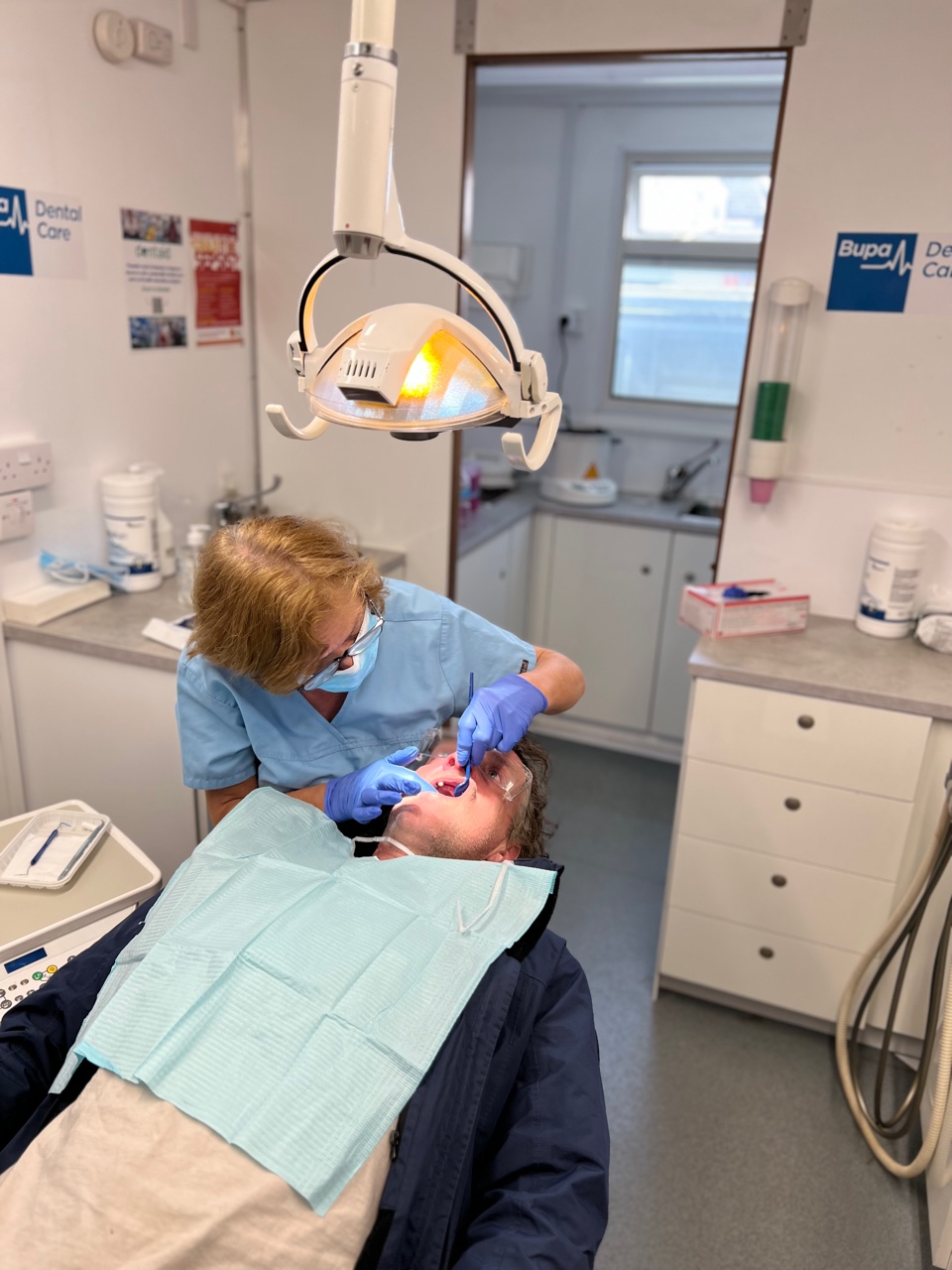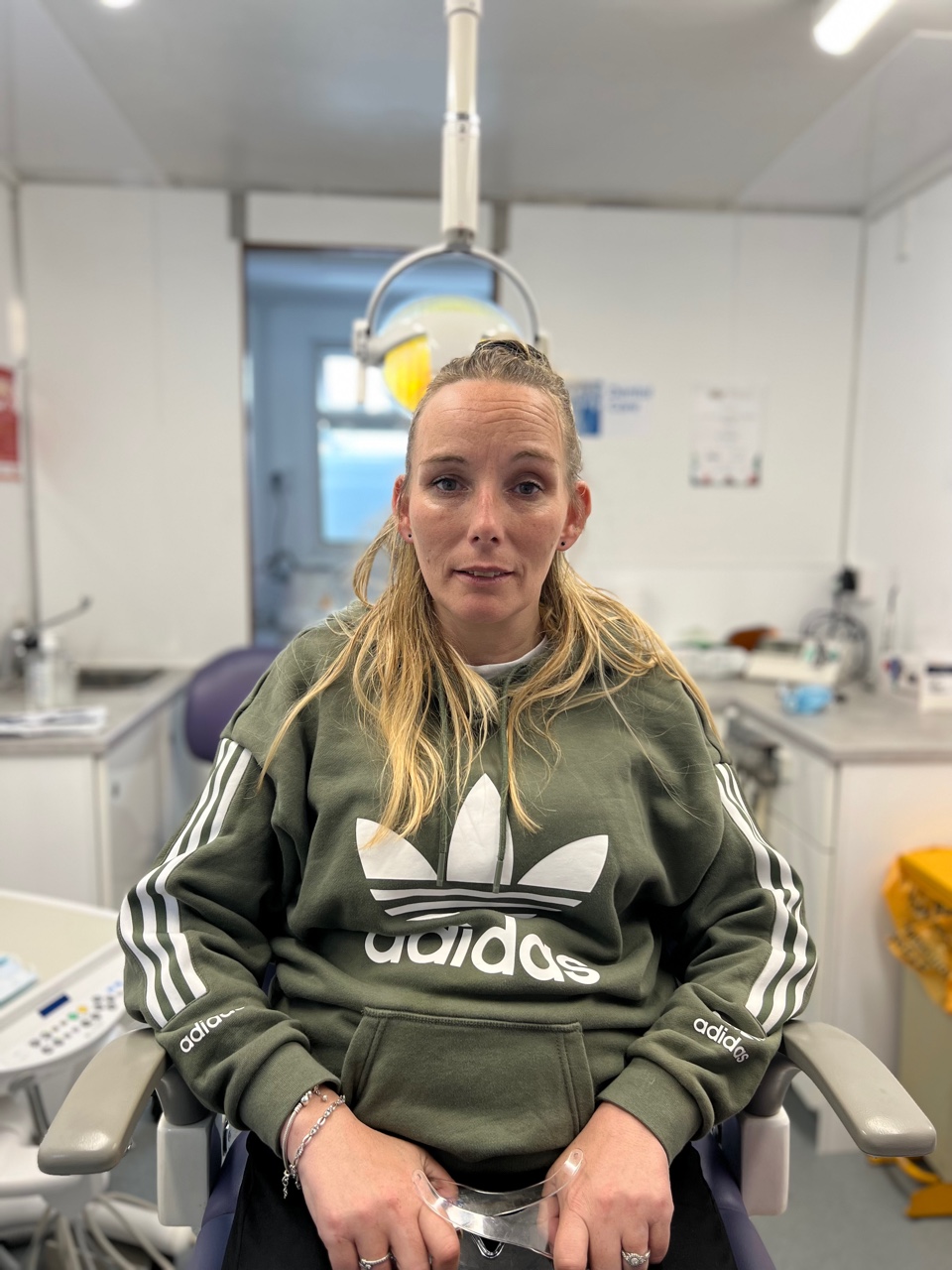For more information, visit www.oralbprofessional.co.uk/s.

With the NHS in crisis and the cost of living skyrocketing, charity services are facing an increased burden to ‘bridge the gap’ in dental care. How can they adapt to accommodate this strain?
The cost of living crisis has brought into sharp focus the plight of those communities most disadvantaged. Within dentistry, we are witnessing growing disparities in oral health between people of different socioeconomic statuses – another cause for significant concern.
The problems within NHS dentistry are exacerbating the situation, with many people warning that the service is at risk of disappearing altogether.
In the meantime, it is left to charities, such as Dentaid The Dental Charity, to bridge the gap in care. Both for people unable to get an NHS appointment and those for whom attending practices is never an option.
But the current climate has brought challenges for the charity sector, too. It has increased demand while placing financial pressures on their operations. The need to ensure future resilience amid the turmoil has never been so vital.
The need to ‘pivot’ charity services
But a shift in strategy can help a charity achieve its goals over the long term. Dentaid The Dental Charity knows only too well about the need to pivot services.
Shifting its operations away from populations overseas to meet increasing needs in the UK during the pandemic, it has since stepped up operations to meet waves in demand.
The charity runs outreach dental clinics for a cross-section of disadvantaged communities who struggle to access dental care. It has seven mobile dental units and a static dental trailer that travel across the UK, providing dental treatment and oral health advice to those in need.
The call for their services continues to increase, which means sustainable funding is crucial to their work.

In 2022, to mark the anniversary of the first lockdown, the National Council for Voluntary Organisations published its Respond, Recover, Reset: Two Years report to assess the landscape for charities. It predicted that the Covid-19 pandemic would deepen existing economic inequalities, increasing demand for charitable services.
Charities, it said, will need to adapt and expand their services to meet rising demand from the communities they serve. To do this, they must embrace a more flexible approach to funding to include collaboration with other organisations and agencies, such as funders, local authorities, and businesses.
Spotlighting the need to remain fluid
Jill Harding is the communications director at Dentaid, The Dental Charity. While the past three years have been tough-going, she has welcomed the spotlight that these pressures shone on the need to remain fluid in the face of adversity. Success relies on many factors, not least of which is meeting demand where it is most needed.
She says: ‘Our mobile dental units travel the UK providing outreach dental clinics for people who struggle to access treatment, and seeking support from corporate bodies with ethical values that ally with our own has been key to our success.
‘Most dental brands share with us the principles of improving health and wellbeing, want to promote good oral health, and support our efforts to improve access to dental care.’
‘Sustainable funding’ for charity
Collaborating with corporate partners can also provide sustainable funding for charities, allowing them to plan ahead. Oral-B’s recent partnership with Dentaid sees them donating 5% of every sale to the charity’s mobile dental unit programme using an exclusive dental professional coupon.
The dental coupons are only available from the Oral-B territory managers, and complement the Oral-B Test Drive programme that allows patients to try an electric toothbrush before they buy.
In the two months since the partnership launched, it is already reaping benefits for the charity.
Jill says: ‘Sustainability for our different projects is key, and the varied streams of funding and fundraising we receive ensures this.
‘But the generous support we receive from our corporate partners, such as this partnership with Oral-B, is vital because it enables us to diversify, visit new communities, and invest in new projects.
‘For every project that is up and running, we have many other requests to set up services in new communities. Corporate funding can help us to set up pilot projects to test new concepts in new areas.
‘And because it is not ring-fenced, we can use the funding to test benefits, impact in new areas and use it as a springboard to launch projects.’
‘A dynamic relation with the charity’
Corporate funding is also flexible funding, sometimes bridging the financial gap when the charity is waiting for the next round of funding from elsewhere.
For the corporate partners, this type of collaboration gives them a dynamic relationship with the charity, demonstrating a commitment to providing dental care for all, including society’s most vulnerable and hardest-to-reach groups.
‘Supporting us offers corporates something tangible. We are proud of what we do and are always pleased to invite representatives from these organisations to see us at work and gain insight.
‘We host many visits from corporate supporters – their staff can volunteer with us, too. It’s a great incentive to see how best to improve oral health.

‘Our patients are often generous with their time and are happy to talk about their experiences. It’s good for corporate supporters to see how their support makes a difference.
‘It’s not just about the money – it’s about real lives lived. Our partners see the benefits of their support and assimilate that to their staff.’
Adapting to changing circumstances
Jill says the charity had to adapt to changing circumstances fast, and the mix of different funding streams has made the vital difference.
‘We have grown and reached new communities and are helping more people. The number of clinics we run is a success story. Corporates recognise this success and support us. The changes we made were tentative initially. However, when the call for our services skyrocketed after the pandemic, the extra support allowed us to meet that demand.’
Corporates are essential for sustainable funding and help charities maintain resilience during times of crisis. For Dentaid The Dental Charity, it has allowed them to scale up operations across the UK.
The Oral-B coupon programme has already raised £12,225 in March and April for The Dental Charity and is helping the team tick off its project wish list.
‘The range of patients we treat is growing to include victims of modern-day slavery and domestic abuse, cancer patients, refugees and asylum seekers. This list is growing all the time,’ Jill says. ‘
So, in a volatile world we must be fleet of foot and adapt quickly. The financial crisis meant fresh approaches to fundraising and forced us to rethink how to establish long-term support to ensure scalability.
‘Partnering with corporate partners such as Oral-B is helping us take our work to the next level.’


